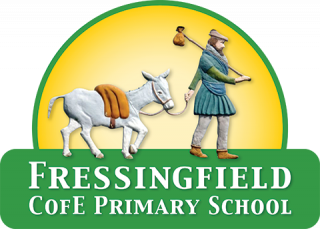Science Curriculum
Fressingfield Primary School understands the need for all pupils to develop their scientific ability as an essential component of all subjects and as a subject in its own right. A good understanding of scientific knowledge and conceptual understanding helps to support pupils work across the curriculum.
Intent
At Fressingfield Primary School we believe that a high quality science education provides the foundations for understanding the world through the specific disciplines of biology, chemistry and physics. Science has changed our lives and is vital to the world’s future prosperity, and all pupils should be taught essential aspects of the knowledge, methods, processes and uses of science. Through building up a body of key foundational knowledge and concepts, pupils should be encouraged to recognise the power of rational explanation and develop a sense of excitement and curiosity about natural phenomena. They should be encouraged to understand how science can be used to explain what is occurring, predict how things will behave, and analyse causes.
Science in our school is about developing children’s ideas and ways of working that enable them to make sense of the world in which they live through investigation, as well as using and applying process skills. The staff ensure that all children are exposed to high quality teaching and learning experiences, which allow children to explore their outdoor environment and locality, thus developing their scientific enquiry and investigative skills. They are immersed in scientific vocabulary, which aids children’s knowledge and understanding not only of the topic they are studying, but of the world around them. We intend to provide all children regardless of ethnic origin, gender, class, aptitude or disability, with a broad and balanced science curriculum.
Implementation
In ensuring high standards of teaching and learning in science, we implement a curriculum that is progressive throughout the whole school.
Planning for science is a process in which all teachers are involved to ensure that the school gives full coverage of, ‘The National Curriculum programmes of study for Science 2014’ and, ‘Understanding of the World’ in the Early Years Foundation Stage. Science teaching at Fressingfield Primary School involves adapting and extending the curriculum to match all pupils’ needs. Where possible, Science is linked to class topics. Science is taught as discrete units and lessons where needed to ensure coverage. Teachers plan to suit their children’s interests, current events, their own teaching style, the use of any support staff and the resources available.
We ensure that all children are provided with rich learning experiences that aim to:
- Prepare our children for life in an increasingly scientific and technological world today and in the future.
- Help our children acquire a growing understanding of the nature, processes and methods of scientific ideas.
- Help develop and extend our children’s scientific concept of their world.
- Build on our children’s natural curiosity and developing a scientific approach to problems.
- Encouraging open-mindedness, self-assessment, perseverance and developing the skills of investigation – including: observing, measuring, predicting, hypothesising, experimenting, communicating, interpreting, explaining and evaluating.
- Develop the use of scientific language, recording and techniques.
- Develop the use of computing in investigating and recording.
- Make links between science and other subjects.
Science is taught consistently, once a week for up to two hours, but is discretely taught in many different contexts throughout all areas of the curriculum. For example, through English and Maths.
At Fressingfield we aspire to promote children’s independence and for all children to take responsibility in their own learning, therefore we have implemented self/teacher assessment sheets, which the children use as a working document to track their achievements and progress throughout a topic. We have also developed the use of ‘what we know’ and ‘what we want to learn’ tasks, which are completed at the beginning of each topic (pre-learning task). The topic ends with a follow up task to show what ‘what we have learned’, in order to show clear progression and children’s new found knowledge and understanding.
Impact
The impact and measure of this is to ensure children not only acquire the appropriate age related knowledge linked to the science curriculum, but also skills which equip them to progress from their starting points, and within their everyday lives.
All children will have:
- A wider variety of skills linked to both scientific knowledge and understanding, and scientific enquiry/investigative skills.
- A richer vocabulary which will enable to articulate their understanding of taught concepts.
- High aspirations, which will see them through to further study, work and a successful adult life.
We measure the impact of our curriculum through the following methods:
- Assessing children’s understanding of topic linked vocabulary before and after the unit is taught
- Marking of written work in books
- Using dialogic learning tasks to assess children’s understanding
- Summative assessment of pupil discussions about their learning.
- Interviewing the pupils about their learning (pupil voice)
- Moderation staff meetings where pupil’s books are scrutinised and there is the opportunity for a dialogue between teachers to understand their class’s work
- External moderation of children’s work within the Academy
- Formal reporting of standards at the end of each Key Stage
The science subject leader will continually monitor the impact science teacher is having on the children’s learning through looking through workbooks to ensure the progress of knowledge and skills is being taught. They will also ensure the knowledge taught is retained by the children and continually revisited and that the learners are able to apply the skills they have been taught to a variety of different settings, showing independence with their learning.


